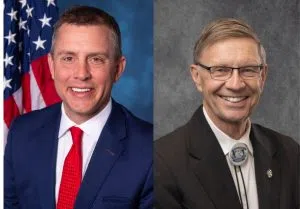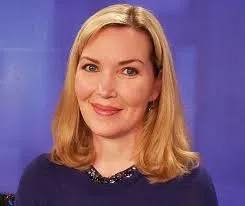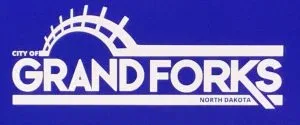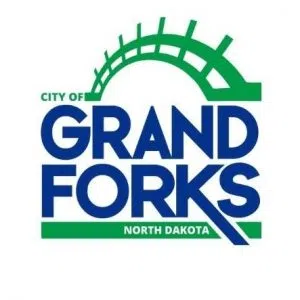
Republican Kelly Armstrong, left, and Democrat Merrill Piepkorn participated in a debate Sept. 6, 2024, as they campaign to be North Dakota’s next governor. Independent Michael Coachman also is running for governor. (Photos provided via North Dakota Monitor)
(North Dakota Monitor) -Two of North Dakota’s gubernatorial candidates differed on how to address workforce issues, culture wars and rebuilding trust in government during their first debate of the 2024 election Friday.
Republican candidate Kelly Armstrong and Democratic-NPL Party candidate Merrill Piepkorn debated multiple issues facing North Dakotans for about an hour during a podcast hosted by Forum Communications columnist Rob Port and Chad Oban, executive director of North Dakota United. Independent candidate Michael Coachman also is running for governor.
Armstrong emphasized the importance of drawing in young people and retaining them after graduation.
“Our best workforce recruitment tool is our higher ed system,” Armstrong said.
Piepkorn agreed, pointing out that with state support in recent years, businesses have been expanding apprenticeships and paid internships to students.
“Our Legislature does not always put as high a priority on higher education as we two gubernatorial candidates do,” Piepkorn said. He added local unions have ramped up their apprenticeship training programs geared toward younger workers to get them into high-paying career fields sooner.
Armstrong said he doesn’t have the “silver bullet” to fix complicated workforce issues, but addressing housing, health care and educational needs would be a good start to drawing more potential to the state.
“I don’t know if we can handle $2 billion economic development with no plan to build housing and no plan to recruit employees,” Armstrong said. “It doesn’t do North Dakota any good if that new business is poaching from existing businesses when you already have 15,000 to 30,000 open jobs.”
Culture war issues
Piepkorn said the Legislature passing “bad bills” such as a ban on abortion and laws affecting transgender people has kept people away from North Dakota.
“That is what makes national headlines and that does not attract younger people to our state, but rather makes them think twice about coming to North Dakota,” Piepkorn said.
Armstrong said he would want to see metrics on whether those types of bills are keeping people away from the state.
He also said he thinks people should need to show proof of age to enter a pornographic website.
“I’m very less worried about what books my kids see in a library as to what they can get on their phone,” said Armstrong, referring to book ban bills that were discussed in the past session.
Armstrong said he gets frustrated when people say “culture war issues” with a negative connotation.
“I’ve talked to a lot of people over the course of the last six months in North Dakota and those issues are really, really important to people,” Armstrong said.
He said much of it comes down to local control because the Stark County school board and the Cass County school board are going to have different issues to address.
“I don’t think any governor in Bismarck should be making decisions that are uniformly accepted across all counties to all degree,” Armstrong said. “We elect school boards, we elect city commissions, we elect county commissions, and we elect them for a reason, and I am not sure we should be dictating down to them what to do on those things.”
Piepkorn said he would have vetoed the state’s book banning bills and the state’s abortion ban.
“In some of these things, they are making an issue out of things that are not an issue,” Piepkorn said. “I think some of these things are being brought into the Legislature from outside sources, national organizations, who have pinpointed the Legislature to carry forth this agenda.”
He said in the year since the book banning bill went into effect, only one complaint was made in Bismarck against one book in the children’s section of the library and, after it was reviewed by the library board, the book remained in the children’s section.
“I don’t know what the process will be exactly to roll some of those things back,” Piepkorn said. He added the imbalance in the Legislature of 43 Republican senators to four Dem-NPL senators means the majority can roll through their agenda, but he does believe there are plenty of moderates who want to do the best thing for North Dakota, if they are given a chance.
Rebuilding trust
When asked how Republicans can win back trust after former Rep. Ray Holmberg’s guilty plea to child sex tourism and Rep. Jason Dockter’s misdemeanor conviction, Armstrong said trust needs to continuously be built through actions. He added he has voted against censuring Democrats and voted for expelling Republicans while in Washington, D.C.
“This is the 21st century. You shouldn’t have to do open records requests for information that should be basically available on a website,” Armstrong said. “I think you call out bad behavior when you see it and it doesn’t matter if it’s a Democrat or Republican.”
Without mentioning his name, Armstrong said it was a “worthy endeavor” to expel former U.S. Rep. George Santos, R-New York, after he was charged with misusing campaign funds.
“When somebody asks you a question, you answer it,” he said. “And you don’t hide under your desk trying to avoid it.”
Piepkorn said his election as governor would “automatically” lead to more transparency, accountability and trust in government.
“With the supermajority in the Legislature, with 30 years of Republican governors … it’s just led to an environment of entitlement,” Piepkorn said. “There’s probably more headlines right now in the Republican Party because there are five times as many of them as Dem-NPLers in state government.”
He also said it’s easy to point out differences, or faults, in a person with opposing viewpoints, but it’s up to him and other elected leaders to look beyond that.
Armstrong and Piepkorn will face off in a debate hosted by Prairie Public on Oct. 10. Coachman is expected to attend the second debate.









